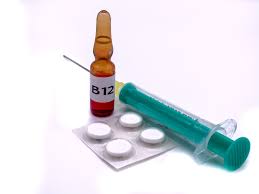30 pc of US antibiotic prescriptions unnecessary: study

At least 30 per cent
of antibiotics prescribed in the US may be unnecessary, according to a new
study that supports the need for establishing a goal for outpatient antibiotic
stewardship.
An estimated 30 per cent of outpatient oral antibiotic prescriptions in the US in 2010-2011 may have been inappropriate, researchers said.
Antibiotic-resistant infections affect 2 million people and are associated with 23,000 deaths annually in the US, according to the researchers at Centres for Disease Control and Prevention (CDC) in the US.
Antibiotic use is the primary driver of antibiotic resistance and leads to adverse events ranging from allergic reactions to Clostridium difficile infections.
Katherine E Fleming-Dutra of CDC and colleagues used the 2010-2011 National Ambulatory Medical Care Survey and National Hospital Ambulatory Medical Care Survey to estimate the rates of outpatient oral antibiotic prescribing by age and diagnosis and the estimated portions of antibiotic use that may be inappropriate in adults and children in the US.
Of the 184,032 sampled visits, 12.6 per cent of visits resulted in antibiotic prescriptions, researchers said.
Sinusitis was the
diagnosis associated with the most antibiotic prescriptions per 1,000
population (56), followed by
suppurative otitis media (ear infection; 47
prescriptions), and pharyngitis (common cause of sore throat; 43
prescriptions), they said.
Collectively, acute respiratory conditions per 1,000 population led to 221 antibiotic prescriptions annually, but only 111 antibiotic prescriptions were estimated to be appropriate for these conditions, researchers said.
Per 1,000 population, among all conditions and ages combined in 2010-2011, an estimated 506 antibiotic prescriptions were written annually, and, of these, 353 antibiotic prescriptions were estimated to be appropriate, they said.
Half of antibiotic prescriptions for acute respiratory conditions may have been unnecessary, representing 34 million antibiotic prescriptions annually.
Collectively, across all conditions, an estimated 30 per cent of outpatient, oral antibiotic prescriptions may have been inappropriate, researchers said.
Attempts to improve outpatient antibiotic prescribing likely require two complementary strategies - changing clinician behaviour to alleviate concerns related to diagnostic uncertainty, alienating patients and not conforming to peer practices and educating patients and families about the role of antibiotics in medical care, they said.
The findings were published in the journal JAMA.
AIMIM News
Latest Urdu News
Most Viewed
Should there be an India-Pakistan cricket match or not?

























.jpg)
.jpg)
.jpg)


